Advanced Thinking Skills (4 book series)
Original price was: $165,95.$40,00Current price is: $40,00.
- 100% Satisfaction Guaranteed!
- Immediate Digital Delivery
- Download Risk-Free
✔️ Digital file type(s): 𝟒𝐏𝐃𝐅
From Book 1: Struggling with math? Are numbers your #1 enemy?
Learn the EXACT thinking tools the top mathematicians use to utilize their math skills in real life and radically change how you shop, save, and think!
Achieve your full potential with unlocking your mathematical mind – even if you think you don’t have one.
Math is taught in a dull, authoritarian, and limited way. You either know how to do the Pythagorean theorem or you don’t. But there is SO MUCH more to math than mere calculus and geometry. It pervades almost every life aspect – from how your insurance premium is calculated to the deal you should choose on Black Friday.
Don’t let numbers get in your way to succeed in life. You CAN do math – without the formulas.
Learn to assess information in a logical manner, understand the real connection between risk and probability, make calculated decisions – no hardcore math involved. Mathematical Thinking – For People Who Hate Math provides a new way of looking at the world.
Unlock life-changing ideas and use them to make better and more informed decisions.
- Express yourself in a precise and concise manner using the language of math.
- Learn how turning your focus off can help solve challenging problems.
- How to turn risk and probability to your advantage… mathematically.
- Manage test anxiety like a pro.
A math manual you’ll actually love to read, with research-backed examples for faster learning and greater everyday impact.
Albert Rutherford is an internationally bestselling author whose writing derives from various sources, such as research, coaching, academic and real-life experience.
Thinking mathematically is not the same as doing math. Discover the underlying, everyday utility of math they don’t teach you in school.
118 reviews for Advanced Thinking Skills (4 book series)
You must be logged in to post a review.

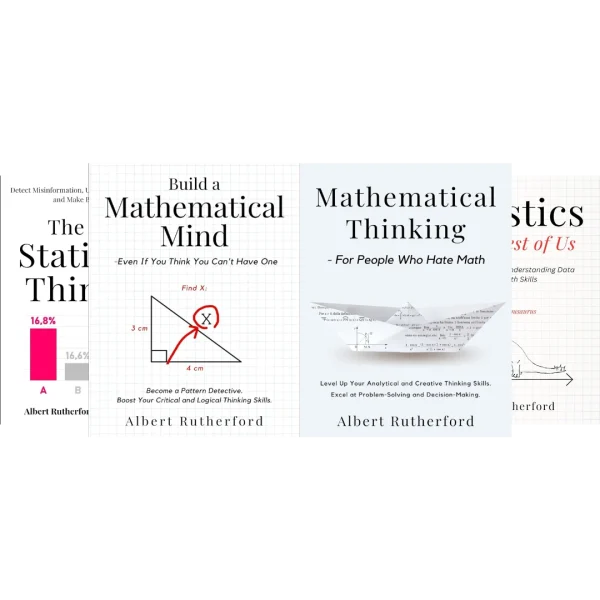
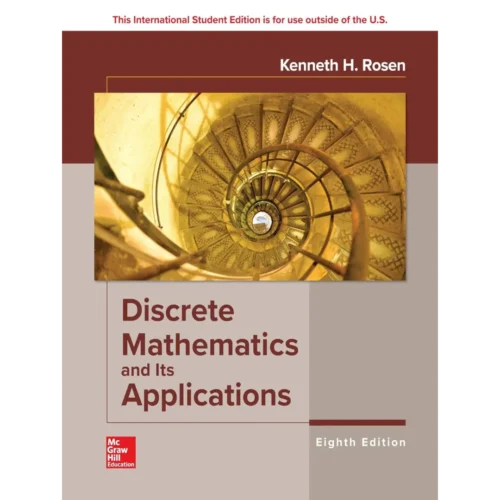
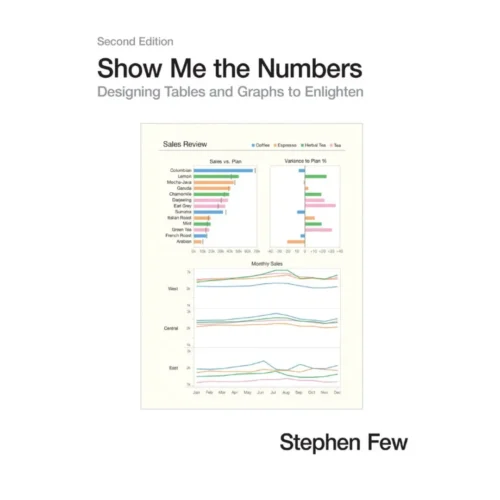
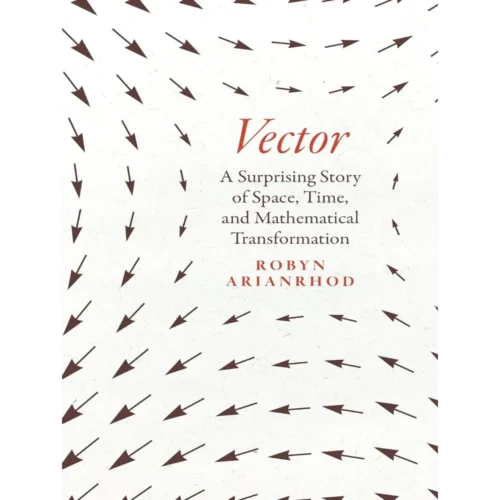
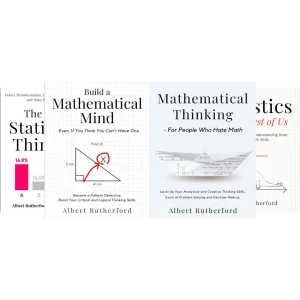
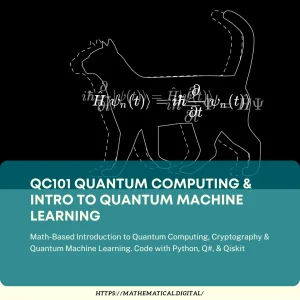
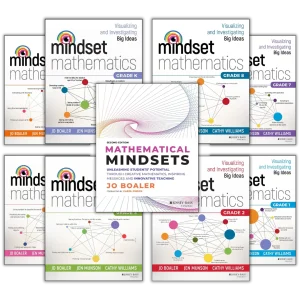
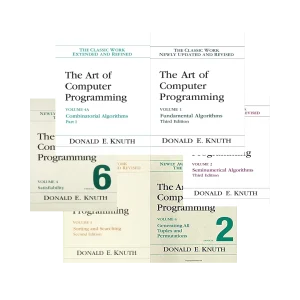
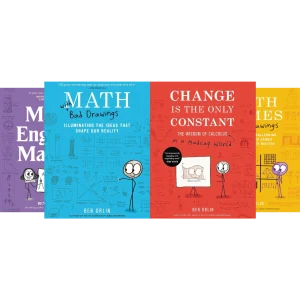
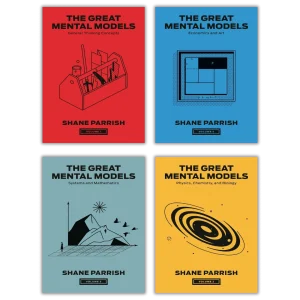
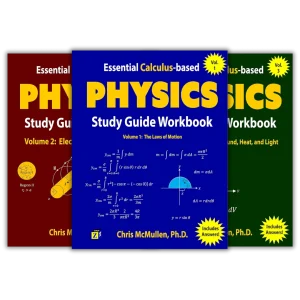
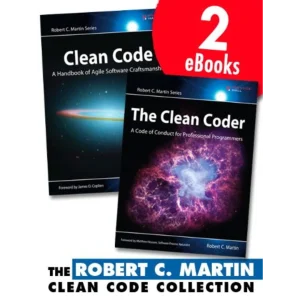
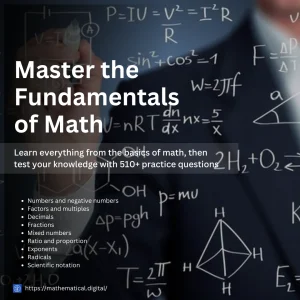
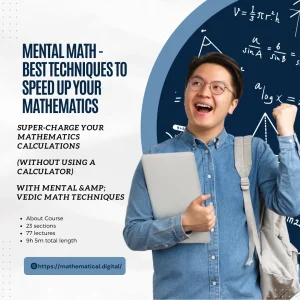

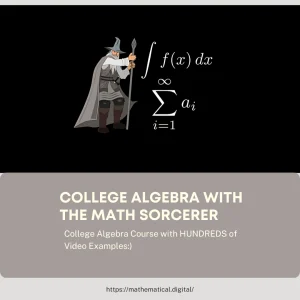
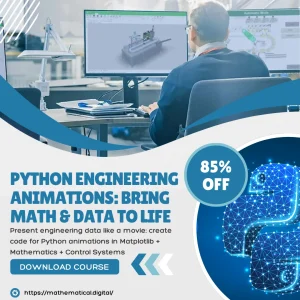
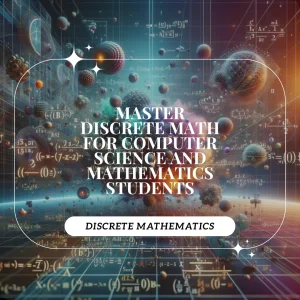
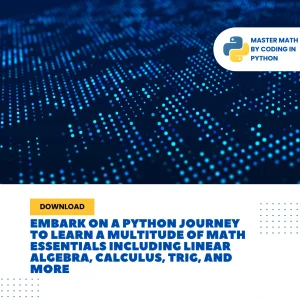

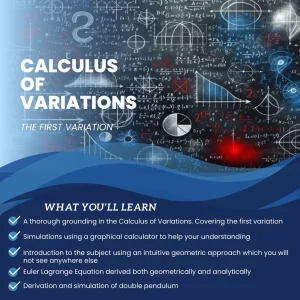
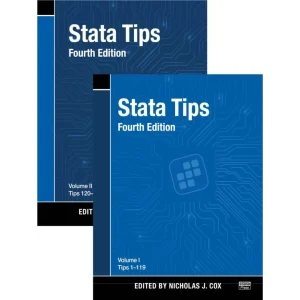
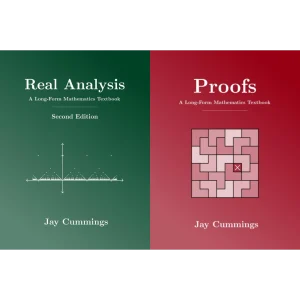
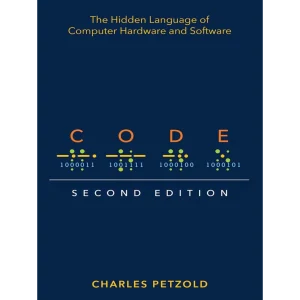
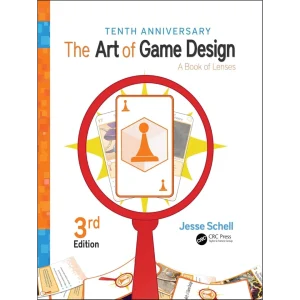
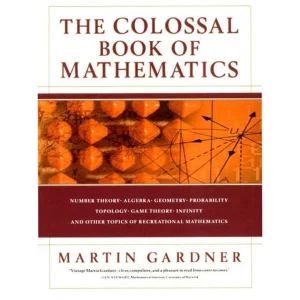
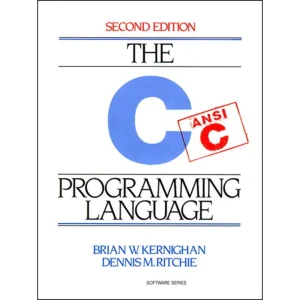
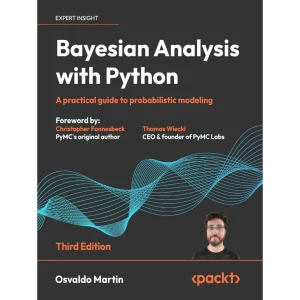
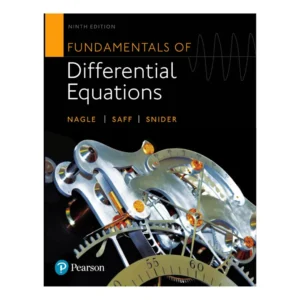
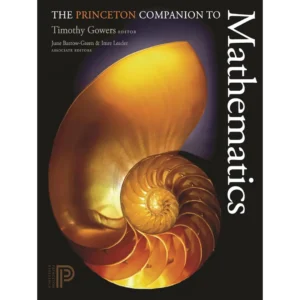
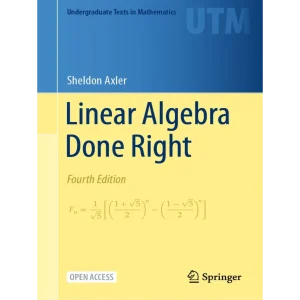
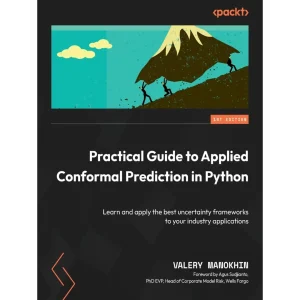
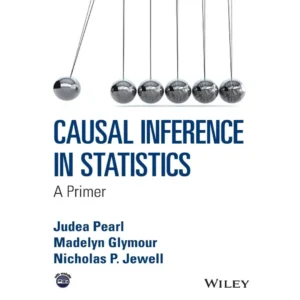
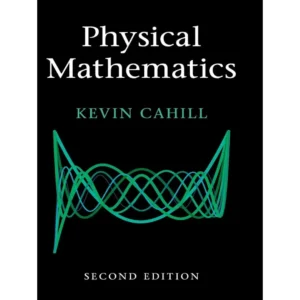
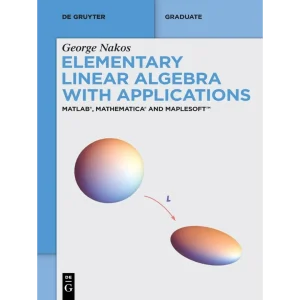
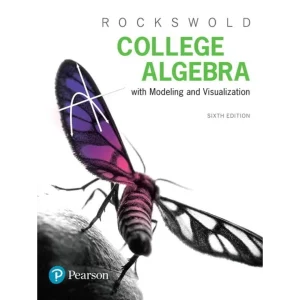
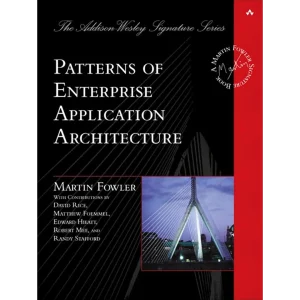
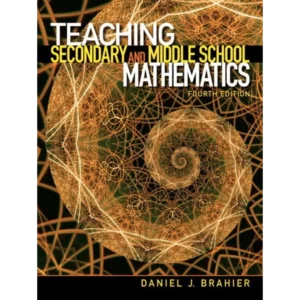
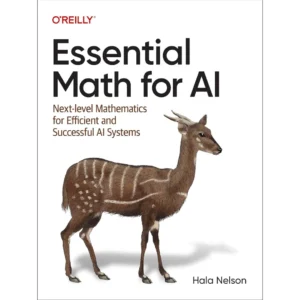
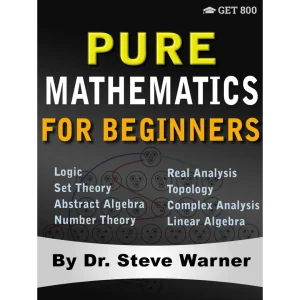
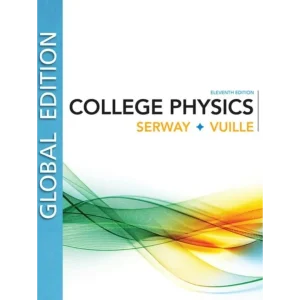
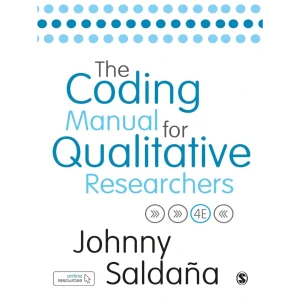

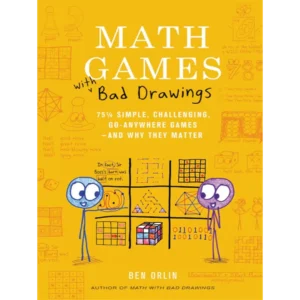
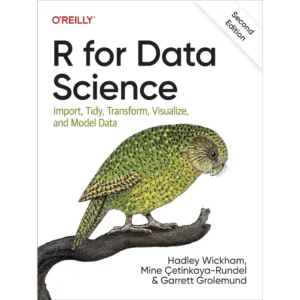
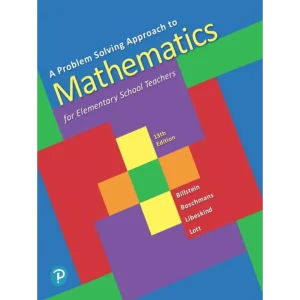
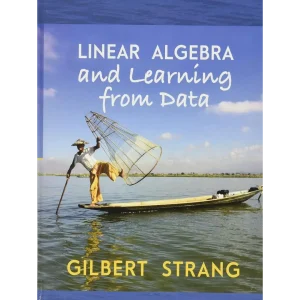
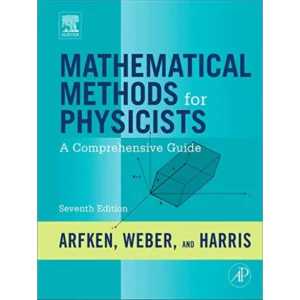
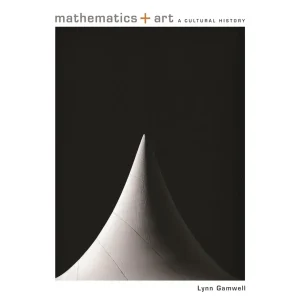
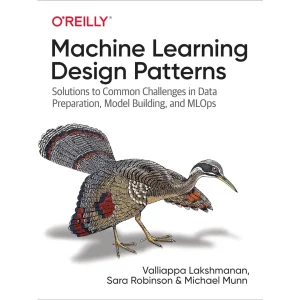
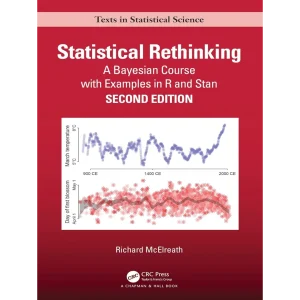
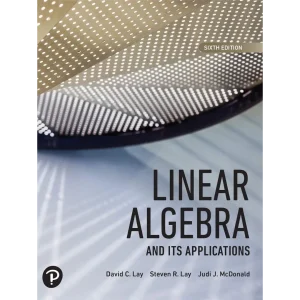
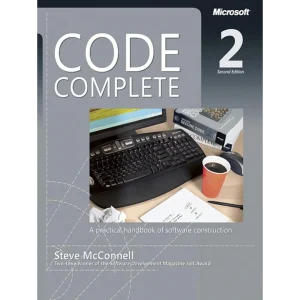
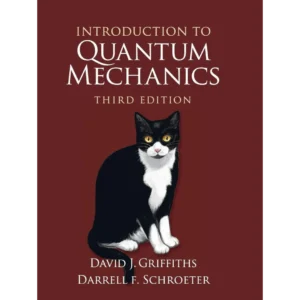
Taylor –
For people who hate math? Perfect for me! As someone who is not only a self-proclaimed hater of math, but is also very terrible at it, this book was great for me. Rutherford relates analytical thinking with mathematical concepts that are digestible (even for me)!
SB –
This is a very useful, clearly written, highly applicable book on math. Better said how to use all that math we learned in real life. I found the section on insurance premium calculation, and the shopping tips the most useful. The anecdotes on linear vs nonlinear thinking we’re also eye opening. A recommended read.
Rachel Watson –
I wish I read this book when I was in school! It would have made a great difference in how I studied math. But never too late, the tips here are evergreen and applicable to the number-related hurdles of adult life. Taxes? Savings? Sales? I have a better grasp on the whys and hows and how to manage my finances better. The book also gives some good insights on test taking and stress management while taking tests. Good, quick read overall.
Den –
4 stars because it’s American and had some graphs in, but on the whole, brilliant and it has footnotes! Read it.
Hay –
While I don’t hate math, I’m certainly not great at it by any stretch of the imagination. This book is immensely helpful in teaching you how to improve your critical thinking and problem-solving skills. Many of the concepts found in math can help you in other aspects of life, so while you may not necessarily still be in school or studying math, you can certainly apply this to many fields. I love how the author guides you through mathematical thinking, from abstract to precision and more.
My only qualm is that I noticed the pages at the bottom of the book actually restart at the end of every chapter, which is a bit odd when I try to keep tabs on how far I’ve read. Aside from the page formatting, I believe this content is incredibly insightful and helpful to all looking to improve their analytical skills!
Ben Z. –
This is book is great for those students that love reading books, but can not stand Math! It merges critical thinking and reading with mathematical insights and analysis. Overall, helpful for the right student.
Taylor James Sapp –
Wow, I really loved the concept of this book. Relating mathematical equations, synonyms & antonyms, synthetics and analytical thinking, and a host of other concepts for more thoughtful thinking and problem solving. I also liked the specific exercises and felt this book does an excellent job of informing and giving examples of how to apply the knowledge. An absolutely fantastic resource for refining one’s thinking and problem solving strategies!
Mello –
This book taught me a lot about subtle things regarding math I never learned in school. The focused and restful thinking switch was a huge aha moment for me. I’m inspired to keep practicing these techniques and dive deeper into more math related topics. Good read.
Zachary –
I’d give this book a recommendation to someone who needs a quick math book that’s not too deep in the mathematical trenches so to speak, but honestly I was hoping for a bit more.
The chapter on linear thinking and non-linear thinking was the highlight for me. It was really interesting and I think I’ll be exploring it further.
I wish that when math was used in the book it was a bit more clear what was going on. Overall though I think it’s well worth the investment because it’s short even though some parts pack a punch more than others.
Valerie RD –
Who’s struggled with maths in school? It’s me! Who’s thought that maths need in school only? It’s me! So this book is totally for me! Course we all need critical thinking
Reader KA –
Although this book was described as a story about mathematical thinking, it was actually about building skills for lifelong learning.
The author tackled a wide range of subjects, including the English language, politics, psychology, economics, mental health. There was even a “spiritual quality” in the pages of the book.
I enjoyed reading this short, well-written piece. Most importantly, I learned something after reading this book.
Ahmed F. –
A good critical thinking practice book that helps in all life aspects, not just math. My only take if the page formatting and the book was also a bit short. Recommended
LeeO –
Happy I read this book. My favorite part were the tips on how to think in a more logical and productive way about money-related life choices. Adding AI techniques to our own human thinking is kinda cool.
Gregory P. –
Good primer for people who want to refresh their basic knowledge on math. The book has some good, unconventional tips as well. Enjoyed this read.
JK –
What a mind-widening read! It was great to refresh some of the math principles I know I learned back in the day. Also, it was helpful to read about the math-related tips and trick they didn’t teach you in school.
Matias –
A good refresher on a lot of things I learned in school, and some more. Some strategies here are things I’ve heard before. But the evidence and reasoning are so convincing that I found myself incorporating these modifications into my life.
Joshua David Cain –
This book does not just teach you how to train your mind to be better at solving mathematical problems but it enhances your analytical thinking.
Lori –
Finally, a book on mathematics that acknowledges people that hate math. Which is a lot of people. We need more books like this to help people to find mathematics useful, engaging, even divine and a purposeful necessity. Beyond just adding and subtracting money. Which is the only time that people who despise math care about math.
I like this quote:.“Critical thinking is important because it allows us to acknowledge our emotions, but not be controlled by them.” Not to be affected by them, as in to not let them drive your decision-making processes. After reading this, it surprised me to find that people that love math actually think like me. And aren’t entirely different. And from a different species. My father loves math and I feel like he has a genetic predisposition to mathematics and he also loved physics. My brother who genetically inherited the ability to do math from him(our father), on the other hand, loves physics, got a degree in it, and did NOT like math because he said that with math he doesn’t know why he’s doing anything that he’s doing, but with physics there is purpose and there’s a reason. The reason I use the phrase “genetic predisposition” is because I grew up with my brother and he didn’t like math but could naturally do math well and I couldn’t, but I could write well. That is fiction, poetry, songs. I was good at English and all things creative writing.
Anyway, one of my genuine reasons for reading this book is to see if people that love math or are good at it have similar thought processes to myself. I grew up with a father that loved math and is very good at math, but I guess I just wanted to know if other people outside of my family that love math and are good at it have similar kinds of thinking, which this book proved/confirmed to me. So that means I’m not bad in math like I’ve been thinking my whole life but had bad math teachers, that’s all. I was willing to learn math to the best of my ability. But the teachers weren’t the best at teaching it. I mean, I think math teachers are better in the United States than the country I grew up in.
Anyway, this quote rings true, “Just like analytical thinking, critical thinking isn’t something you’re born with. It’s a skill you gain with education and practice.” That’s something that I have started notice ever since I graduated with my masters.
For the part on memorization. It depends on what kind of memorization. If its mental memorization, then that is definitely not understanding. But if it’s muscle memory like typing, balancing, walking on a pole, those sorts of things had to have an understanding before you became so accustomed to it you don’t even think about it anymore when you’re doing it.
As a creative writer, I really enjoyed the Chapter on creative thinking. I didn’t know that, “mathematical thinkers often hit a roadblock; they feel stuck. To make progress, they follow creative leaps and bounds to conjecture a hypothesis that then they will try to prove.” So it shocked me that math-thinkers have to be creative, especially since I was already thinking of creativity as infinite, and never ending.
I used to think of math-thinkers, sometimes even the ones in my family, as methodological, calculating and rigid.
See, creativity is all-encompassing and is vital for every corner of our lives. I highly recommend this book for people that hate math now or hated math growing up. It’s not scary, and it’s not strange to take a dive in.
Brennah –
I am not that far in the book yet however so far I love it!
Cat Lover –
So I don’t have a math brain. This was interesting in that it helped me look at problems in a different way and come up with some solutions I might not otherwise have thought of.
Leanne Duncan –
Great read on the basics of mathematical thinking. It gave me a good refresher on concepts I knew before and also some new nuggets.
Matias –
I have taken a couple stats classes in grad school, but it has been a few years since I used those skills. I was looking for a quick refresher. I really like that explains basic theories, tests, and assumptions in simple language, provides examples, and plenty of explanations. Very useful.
Taylor –
The Art of Statistical Thinking is very well written. This book gives you a glimpse into the world of statistics. If you have ever wondered about how statistics work, but didn’t study it, this book would be a great springboard for you. Rutherford and Kim talk about what statistics does, what it looks at, and how it works. The examples are simplified to make it easy for anyone to understand.
The book is written from a perspective of genuine care to educate, inform, and include. The authors do a great job at making the process of learning statistical basics less painful. Their examples make reading the book entertaining.
I really liked the last chapters where the authors explain how different groups can mess with data depending on how they interpret it or how professionals can skew the methodology to produce certain results. They provide a great explanation of how some people lie with statistics or distort confidence in results, and how others inadvertently create misleading charts because of different biases.
JK –
I was looking for a book to help me broaden my knowledge of statistics without being overwhelming. This one was a great fit for that purpose. The explanations and the examples are very clearly stated and presented in an easy to follow fashion. The authors are very knowledgeable in the field – one of them has a PhD in it. The priming knowledge runs deep rather than wide, the writing is coherent, the examples relevant. It was a pleasure to read this book. It stoked my curiosity to start digging deeper into more advanced topics related to statistics. Hopefully they will write a book on probability calculations or using the R programming language for statistics.
Hal Macomber –
Mr Rutherford knows the subjects he writes about. He needs to get a good editor. It will improve readability and presentation.
Rachel Watson –
I am taking a biostatistics class and they assume we all know the basics. Well, not really – a refresher would have been nice at the beginning of the class. This book has been so helpful to refresh critical ideas and key concepts and explain the basics of statistical thinking in detail. I’m happy I chose this book as my crutch.
Gregory P. –
Good introduction to statistics – the good, the bad, and the ugly. A lot of people would benefit from understanding how statistics is used and misused in different fields. And this book gives a great peek into that.
Avimanyu Datta –
This book offers a detailed, illustrated breakdown of the fundamentals of statistics. Develop and use formal logical thinking abilities to understand the message behind numbers and charts in science, politics, and economy.
SKreview –
This book will be better understood by a statistician, however it has some knowledge for non-statisticians also. Recommended for people who want to know about statistics and concepts.
LovelyDay –
If you’re new to statistics, this is your book. You will learn everything you need to know and more! For those who didn’t know, we use statistics even in little situations. This book will teach you how statistics plays a big part in our lives and more.
EagleRay –
“The Art of Statistical Thinking” is a concise introduction to statistical ideas and concepts. It is written at a college level and would make a useful suppemental or reference text. Even if you don’t completely understand the complexity of the math, statistics is applied mathematics and this book can help you understand and interpret statistical data.
LBD –
The purpose of this book is to review statistical methods and concepts, and how they can be applied to real-world problems. It emphasizes statistical thinking as a way of making decisions. However, the current paradigm of statistical decision-making, known as the null ritual, does not encourage thoughtful and thorough decision-making. Instead, it promotes a mechanical and mindless approach to computing. Very interesting account of how statistics sometimes get thinks very wrong. Written more for the statistician than the ordinary reader. But useful information.
Nelo –
I enjoyed this book because of how its made and mostly the technology in it because I really enjoy technology because if you know technology you could learn how to code or maybe things that other people don’t know. This book is great and I recommend it for people that are into technology but everyone can read it that’s why its a book I’m just recommending it.
Asko Korpela –
I expected more philosophical than the technical aspect of the statistical approach to the subject matter of this book. In certain parts of the text, the argumentation was too technical for me to follow. Already for more than 60 years, I have defined my worldview as statistical or stochastic. What has it meant in practice? The percentage has been invented in order to avoid writing decimals in quantitative comparison in percentages of things. With the exception that the measured quantities of the things to be compared are less than 10 percent. As a university lecturer of econometrics in my ‘Ajksioms’ I have stated: You may write observations with the exactitude of three digits, speak with the exactitude of two without decimals and remember with the exactitude of one digit. If I see written information with more than three-digit exactitude, severe doubts about the sense of relativity and understanding of the author of the information arise. With horror do I look at information where percentages over 10 with decimals are presented as the basis of decision-making?
This is my constant creed and worldview. No religion is needed even if with interest and appreciation following the philosophical aspects of religions and beliefs. In mind Popper’s definition of the limit between science and religion: Science, if the possibility of error is admitted. Religion, if presented without the possibility of error.
Starting to read a book titled ‘The Art of Statistical Thinking’ I expected more of this kind of philosophic argumentation than the technical approach of statistical science. Therefore, a certain degree of disappointment, also in my ability to follow and understand the text. Therefore, only four stars and not five as I expected seeing the title of the book the first time.
Hopper –
The book is interesting, but it is not light reading. The book contains a lot of formulas and math. After explaining various statistical concepts, the book states that people do not use statistics correctly. The book concludes with a chapter on the specific example of how statistics were misinterpreted. I found this last chapter most interesting, and specific historical examples made it easier to follow than the more technical portions of the book.
Mike Joyner –
A well-researched and written book that provides concrete techniques and tools and interesting, relevant real-world examples. This is a meat and potatoes offering without a lot of flash and fluff. Direct education that delivers as the title suggests.
Jose Lourenço Claudio Junior –
Full potential of your mathematical mind in a fun, spontaneous and unlimited way. The Pythagorean theorem beyond calculus and geometry, this in every aspect from formulas to what you should choose.
By appreciating the connection between risk and probability, we learn to make calculated decisions. Don’t let numbers get in the way of thinking symbolically, it offers a way to see ideas changing lives while used to make precise decisions using mathematics.
Turning focus off helps to solve problems.
How to turn risk into probability in your favor…
Manage emotions like a pro.
A manual based on rapid impact learning.
Thinking is not the same as doing, the underlying utility is not taught in school.
Andrew G. –
I found this book really helpful in terms of learning how to look at data and analyze data, and not fall for misinformation (which is unfortunately something people are falling for more and more these days!)
Ejeks –
Yes, this is really an interesting topic but like all statistical books that I have come across, it’s a little heavy on the reading side of things. In some ways, the author did a good job because this is not as difficult as some other statistical book that I have seen. So, a big thumbs up on that score. For transparence, I got the ARC of this book.
ClipShine<span class="a-icon a-profile-verified-badge"><span class="a-profile-verified-text"></span></span> –
No doubt this is an excellent resource for understanding stats but there are lots of equations that unless you are proficient with maths will find the book hard going.
Mello –
Statistics was never my strongest skill but this book helped me have a better understanding on the subject. The examples were helpful and well-explained. Some easy to moderate math involved – but hey, you’re reading about statistics, not a romance novel. It’s a field that uses numbers, so there will be numbers. The authors did a good job at explaining what’s what and how to interpret everything numerical. So again, this book was very useful to me.
KH –
This book offers a comprehensive guide to the fundamentals of statistics, helping readers develop critical and analytical thinking skills. With step-by-step guidance, readers will learn how to detect and avoid misleading information, understand descriptive and inferential statistics, and make better decisions using probability. Written by internationally bestselling author Albert Rutherford and highly cited researcher Jae H. Kim, this book is a must-read for anyone looking to improve their decision-making abilities and understand the world around them.
Rachel Watson –
Math is not just numbers and geometry and this book proves it very elegantly. The author talks about multiple life areas where mathematical thinking is involved without the numbers. He separates each skill he talks about in different chapters. The reading experience is engaging, easy-to-follow, and most importantly, educational.
Taylor –
Many people have a complicated relationship with math. I think that’s mostly because of bad teachers… as this book points it out, there are so many life areas where mathematical logic is used that have nothing to do with the numbers. Granted, one has to understand the basic principles of arithmetics – but basic basic, like how does addition or subtraction work. And you don’t have to calculate in your head how much 14856+24321 is – although you can, and I learned in this book how. Point being, there is more to math than equations and geometry calculations. Really liked the chapters on tinkering and guessing. Good read overall. Would recommend it to everyone who likes to learn new things and train their minds in a chill way.
SeanJones –
It is not for everyone. I am an engineer by degree, and this resonates. The author starts with a history lesson on stats and then moves into how they are used and how they are Improperly used. How sample size affects the outcome and how to see if the data is being cherry-picked are also discussed. I really like the chapter on the misinterpretation of statistics. Useful knowledge– did you know 85% of all statistics are made up on the spot? read this book and you may find the truth.
Erika Nisa Aspiras –
Great tips on what to look for when analyzing data. This book shines the light on the most common statistical methods – and their most frequent misuse.
EOC –
The author knows his stuff and lays out the foundation for a class on the subject for the mere price of a book. From the title I was hoping for something with a bit more soft content of the subject. But i’m already familiar with the root case which is excellently presented here. If your new to the subject and willing to get rigorous with understanding statistics, this is an excellent resource.
Mitty –
I enjoyed this book. However, with a background in engineering, I’ve seen much of the information before. If you have zero background in statistics or you glaze over when you see mathematical formulas, this might not be the book for you.
I appreciated the concise explanations, sprinkling of humor throughout, and the discussion on the “null ritual”. The authors also point out ways in which academia has failed to properly equip students with statistical thinking.
I can confidently say that I set down this book feeling a little bit wiser.
M. Piasecki –
This book is a must read for anyone who has ever struggled with math or claimed they hated it. The title says it all…”Building a Mathematical Mind-Even If You Think You Can’t Have One…” The book holds true to its promise. I love how the author explains how divergent thinking is critical in today’s world. Not only do different points of view and methods of processing mathematical problems in a practical way cater to a world of diverse people, but it is important that we practice those unique and diverse ways of thinking. That is one of the things I learned reading this book. It has helped me understand myself and mathematics in a more practical sense. I highly recommend!
JK –
I always loved math but I feel I got a little rusty over the years. This book was a great manual for remembering mathematical concepts that are not really calculation-related. It’s structured around a “think outside the box” theme, discussing subjects as tinkering, inventing, pattern detection, guessing (probabilities) and other interesting, useful problems.
Faizan Aziz –
Good perspective on critical and logical thinking
EagleRay –
“Build a Mathematical Mind – Even If You Think You Can’t Have One” explores mathematics using logic, along with abstract and divergent thinking. The abstract idea of algorithms means nothing more than using connected steps to achieve a reliable objective—making a sandwich was a practical example. Habit-Stacking is another way we use math to make our lives easier—our morning routine is an example. We all use math a lot more often and in many more ways than we realize.
James Campion Conway –
I was not a good student in math. I just didn’t care. However this author truly loves his subject and it is infectious. Recommended.
Augustus –
I really love the way the topics were Presented. It was easy to follow and understand. I know I have a new appreciation For how important mathematics is In our daily lives. I highly recommend it. Thanks a lot.
Helge –
I would recommend this book to everyone who has just completed the course of basic statistics. Now that you are familiar with the methods, this book will explain when they can be used, and – most importantly – when they shouldn’t be used (and show the better alternatives). Basically, those details that are not usually taught in statistics courses, but are vitally important for using statistics in real life.
(As some other reviewers already mentioned, you need to have sufficient understanding of the basic statistical methods to fully benefit from this book. However, even without that I believe this book has a lot to offer – especially the explanations of how statistics are often misused (by the press, politicians, etc.))
Callbook –
The trick with math in is to SEE/detect those hidden relationships between objects/ideas/entities….
Brooke Shamblin –
If you’re someone with a more creative-based mind, but have either family members or close friends with more mathematical minds, then this is a wonderful book to read! It may help in understanding their thought processes more and why they do what they do the way they do things.
Liam_Miller_0510 –
Since I was a child I have always been fascinated by everything related to numbers. I love reading all kinds of books about math. This book will definitely help you improve your everyday skills when it comes to mathematics.
W Boroughs –
This is a good book that prods you to seek more. The book provided what it advertised, and it leaves you eager to dig a little deeper. Some of the shortcuts or examples of mind tricks (like for estimation) were interesting and practical. Very good for someone who is resistant to math!
Tyler Schaefer –
So often I hear “I hate math” or “I’m no good at math” and I truly believe anyone could be good at math if they approach it with the correct mindset. This book helps build that mindset.
frank –
I do not have the most mathematically inclined brain, but this book definitely helped boost my confidence in math. I really liked the explanation of estimation and guessing. It gave me a glimpse of how more technical minds think and helped me understand math a bit more. Overall a great read.
Avid reader for life –
But this book shows you how to employ very simple tricks and techniques to greatly sharpen your skills in math. Whether for school or work, everyone can find a way to employ these methods to make for a better path against math issues. 5 stars!
Trish Allison –
I’ve been a fan of statistics and making good decisions all my life, but I never thought about combining the two until I read this book. The author lays out some great ideas about formulating a decision based on statistical analysis. I’m thoroughly enlightened. This is a great book that applies the complicated subject of statistics to life decisions. I was hooked from beginning to end.
Mike watkins Jr. –
This is a great book to read alongside “Making Numbers Count: The Art and Science of Communicating Numbers”.
What i love about this book is that it brings out that math involves asking “what if” and experimenting with those “what ifs”. I don’t know about you but math was presented to me in school as a finite system with only one answer/approach.
The solution is for schools to create an environment that is conducive to divergent thinking, or as Sir Kem puts it, “the ability to see lots of possible answers to a question, lots of possible ways of interpreting a question”. In other words, the author argues that problem-solving skills should be emphasized in math the way they are in other liberal disciplines and he presents various methods that teach you how to do this throughout the book.
These methods consist of the following:
1. Develop a mathematical habit
2. Become a better pattern detective
3. Use probability and experimentation
4. Describe and speak in the language of math.
5. Tinker
6. Invent
7. VIsualize
8. Guess
The author presents these methods in layman’s terms and even presents simple exercises you can do to start applying them.
Further, the author brings out how the creative process used to process music/art etc. is the same process used to process mathematics. In fact, some mathematicians have claimed that their critical discoveries came to them while sleeping (similar to a lot of brilliant musicians).
In other words, everyone has the ability to learn and process mathematics, there isn’t some unique aspect/attribute that you need to understand math.
But ye I would recommend this book to anybody. IT breaks down the flaws in the current American mathematical education system, how to address these flaws, and how you can embrace/lov
MSN –
The author does a great job explaining why so many people, especially in the US and English speakers, have negative early experiences with math. Language plays an important role in the early learning of math and young English-speaking students are at a disadvantage just learning to count to twenty. He gives several references for further discovery.
This book would be very good for math teachers or for dedicated parents looking to help their kids make sense of it.
Mike –
This actually is much more like a thinking education book than a math learning book. It promotes learning thinking skills such as analytical thinking and creative thinking, and apply them in our daily life. It’s very interesting to read it, and it opens up a new perspective for me. One of my take-away from this book is nonlinear thinking. Overall, it’s a book worth to read and keep!
Jude Griffin –
“Mathematical Thinking for People Who Hate Math” by Albert Rutherford is an excellent resource for anyone looking to improve their analytical and creative thinking skills. The book provides practical tips and strategies for problem-solving and decision-making, making it a valuable tool for both personal and professional growth. Rutherford’s writing style is engaging and easy to follow, making complex concepts accessible to readers of all levels. Overall, I highly recommend this book to anyone looking to overcome their fear of math and develop a more analytical mindset.
Reader for Life –
I loved this book. I’ve always had difficulty rigidly accepting “right brain” “left brain” skills. Math is in every thing whether logical or creative. It’s in the building of things and science, as well as, art, writing, music and color. So I loved the way this book explores the many different types of thinking behind the formulae. It beautifully describes the mathematical thinking focused not just simply on the how but the what, when and why behind real world activities and decisions of life.
Reza K Ghazi –
The book tries to teach you how to use math and how to enjoy the benefit of math in life.
Rachel Watson –
I really enjoyed this book. Not only because I learned a lot about deciphering statistics but also because it was a fun read! I didn’t think books on such a -presumably – dry topic could be this entertaining. And I finally nailed down what the Bayesian theorem is! Like holy moly! Sure, I won’t be able to create a full-blown analysis BUT I will know what to look for when I see one. And that’s all I really wanted to learn here. This book delivered its promise.
James Brown –
Bravo! I was caught off guard with how well researched this book was (You can tell the author put their heart and soul into this). The author took the topic of statistical analysis, and pulled the curtains back to show the average person, who hears all types of numbers being thrown around on a daily basis (tv, film, work, school, etc.) how they’re being manipulating “without us even realizing it.” I really enjoyed this read – Would definitely recommend.
Adam S –
From the very first page, the book had me hooked. The author’s use of relatable examples effectively brought the concepts to life, making for an enjoyable reading experience. The author’s insightful exploration of the prevalence of statistical techniques in our daily routines was eye-opening.
J Morelan –
It is astounding to the Casual Observer just how easy it is to misrepresent statistical data.
This book reveals a side of statistics that is seldom covered in this clear presentation.
Well done Albert Rutherford.
Matias –
This book is a great primer/reminder of basic math. But not only that. It also explores ways of thinking like a mathematician- things one didn’t necessarily learn in school but are more useful to everyday life than knowing the Pythagorean theorem. I liked the author’s structuring and found his writing witty and enjoyable. It’s odd to say that a book about math was a page turner, yet I must say it.
Jacob Alinsky –
Wish I had this in school. A ton of stuff packed into one book!
Matthew M –
This book was helpful in building my math skills. It gave me a new perspective and confidence in my math skills.
Gregory P. –
This was a quick read – but in a good way. Very well written and organized, no fluff, to the point – teaching you what it promises, how to think mathematically without using too many numbers. It’s a book on logic and rational thinking for people who want to take these skills to the next level.
Vijay Kumar –
The author showcases how math skills can be used to sharpen everyday skills like problem-solving, communication, and estimation. What’s unique about this book is that it helps readers become proficient mathematicians without relying on numbers. The author breaks down the language of mathematics and shows how it is present in almost every aspect of our lives. The book provides logical explanations that are easy to understand, making it a valuable resource for anyone looking to improve their math skills.
Katelin W. –
Thoroughly enjoyed this one. It’s right up my alley and is super interesting and thought-provoking.
Diana Kimak –
Great book! It was interesting and very informative!
LeeO –
I’m happy I read this book. Some things were just a reminder from my good ol’ high school days but others were eye-opening ideas that I will definitely incorporate in my daily thinking habits. Mathematical thinking is not really about using numbers but to assess critically what those numbers mean.
Amber Lopez –
Loved this brief but information packed book. Gave me the confidence to see myself as a math person. Thank you for the points to ponder.
SharpRead –
This book provides a comprehensive overview of the fundamental principles of statistics without delving too deeply into complex calculations. It is an ideal read for individuals who wish to grasp the essence of statistics when encountering it, but may not possess the requisite skills to perform intricate calculations themselves.
igor indriksons –
This book is for you especially if you’re not a math person.
Don’t worry, this book is designed for the math shy. Written in a clear, jargon-free language and an abundance of real-world examples, Statistics for the Rest of Us will help you understand the concepts and apply them to your advantage.
Hannah Mae –
As someone who isn’t inclined towards math, I discovered this book to be incredibly helpful for brushing up on fundamental knowledge. If you share a similar sentiment towards math, then this book is custom-made for you. It’s expertly designed with those who find math challenging in mind. Through its clear and approachable language, accompanied by a wealth of practical examples, Statistics for Non-Mathematicians will enable you to understand the concepts and apply them to your advantage. Definitely a useful read for parents who have kids in grade-school.
Linda Hill –
Nerd alert! I also love graphs and charts and such. So, I really enjoyed this book.
Alex F –
Collecting statistics is half the battle – correctly analyzing it and drawing conclusions – this is the most important thing. This book will not teach you this, but will give you the basics of understanding how to work with statistical data and why statistics are needed for an ordinary person.
Jakk Straw –
If you’re expecting a 1+1=2 book then you may be disappointed. If you can’t look outside of your rigid, dogmatic brain and can’t see “math” from another perspective, you’ll feel affronted by the author’s logical viewpoint and post a review decrying “wokeness.” But if you’re looking to expand you’re thinking and perspective on the world, this book is for you!
Martin Evans –
Great examples
DisasterMaster –
This was a very clear and concise guide to the basics of statistics and how to look at numbers and graphs with a more discerning eye. This is an important skill that will make you a better citizen.
De’Vannon Hubert –
Great book on how to better understand and apply statistics. I wish I had had this in college.
Joy Jacoby –
I am not a math person but this book helps me to understand the basics skills. I recommend this book to all who are wanting to learn more.
William McGinnis –
For the reader ready to dedicate a fair amount of time, focus and do the work, this book can increase critical and logical thinking skills. My slow brain found it heavy going, but for those with more focus and patience this could be valuable.
Cjreau8 –
very insightful. short but gets to the point.
Michael McFarren –
Albert does an amazing job of simplifying and providing a thoughtful presentation of math. His insight in how math plays an important role in or everyday life is amazing.
Chey –
This book is a great start for understanding statistics if you’re not particularly good at math. The information is easy to understand and has practical examples. Honestly wish I had this in college – much easier approach than those textbooks. Still applicable skills even outside of school.
Karen Marie Shelton –
This book was a wonderful surprise. I really enjoyed how the author, Albert Rutherford, provided real-world examples of each lesson in the statistics he presented. The examples made me stop and think about statistics in an entirely different way. I took statistics classes in college and found them bland but necessary for my studies. With Albert’s book, I kept reading each new section because I was having fun thinking about traditional statistics in real-world applications. I had never considered it before. I highly recommend this book to anyone, whether you like statistics or not. It will open your eyes to the world around you. Did I say I loved it? Well, I really did.
Michael McFarren –
Being a scientist and mathematician, I found this book to be refreshing and informative. I recommend it to all interested in better understanding their world. Don’t be caught unaware. Look and question for better understanding. This book will show you tools to do just that.
Michael S. Parker –
This book is an outstanding resource for anyone seeking to conquer their fear of statistics and develop a solid understanding of this essential field. Whether you’re a student, a professional, or just a curious individual, this book will undoubtedly enrich your understanding of statistics and open new doors of knowledge. The engaging writing style, practical applications, and clear visuals make it a must-read for anyone looking to conquer their fear of statistics.
Michael McFarren –
After years of studying statistics I’ve not had as clear, concise review as presented here. I will be rereading this book and using it as a reference to improve my statistical prowess.
Leila A –
I must admit, statistics have always been a mystery to me. But this book really helped me understand them better. The author’s writing style is incredibly effective in breaking down complex concepts into simpler terms that I could easily absorb. Reading this book was surprisingly enjoyable, considering the subject matter. It made me realize just how many statistics are intertwined in our daily lives, and the amount of information can be overwhelming. Overall, I found this book to be an enlightening read and highly recommend it to anyone struggling with statistics.
Randall –
I took couple courses in college about statistics and it really opened my eyes to how much of the data and knowledge is derived. Statistics is every where, it is used to determine what should be the proper dose of medicine to calculate who’s leading the presidential race. However, statistics is only as good as it is interpreted and applied, so it helps to get a basic understanding of statistics so you can make your own, better informed judgements
Phil –
Since I happen to have adult education students enrolled in my alternative high school diploma classes I knew this book would better help me to assist my students with their math challenges. For sure this math motivating book was a psychological boost.
Israel moya –
This book is great, I personally I’m in the process of liking math, and actually trying to understand it since I’ve discovered how I want to learn, and need to learn so it can be my method for my career. So far this book is good, and it’s a narrative form book so it’s kinda of storytelling, and I love it.
J. Allen Davis III –
This book was really great. I enjoyed looking at this topic in a different way.
Mitty –
Overall, I think “Build a Mathematical Mind” is a good book for building mathematical confidence and intuition. Also, the author makes a good case for why you should learn math and why everyone can be a “math person”. Generally speaking, the book could use some cleanup and better formatting (it feels independently published), but the content itself is good.
Dave McAllister –
One of the best books for basic stats and what they mean that you will find. Delightful examples, witty comments, clear application and insightful warnings. Check out the Monty Hall problem!
DMP –
It’s far to easy to be fooled by strong opinions, myopic media and junk science. This book provides an antidote to help in finding more truth in an ever growing world of half truths and magical thinking.
Eetu1234 –
Master Everyday Math is great for anyone looking to strengthen their math skills and apply them in real-life situations. The author’s approach to probability, for instance, demystifies a complex concept, making it practical and accessible. With this book, I’ve not only improved my math but also my decision-making abilities. Five stars all the way!
Elite-Girl –
Covers calculations needed for most areas of daily life including budgeting, investing, shopping, cooking, and so on. A good refresher especially for the older adult or indeed any person who has struggled with mastering the concepts of manipulating numbers. Recommended.
L. A. L. –
I recommend this book for any one that needs simplified information/instruction on basic math calculations for daily life skills (from shopping, figuring interest rates, to cooking) . Great refresher for myself but a must for younger people who are just learning life skills and home management.
mvrs5112002 –
Master Everyday Math – was fund to reach since I have been out of school for +25 years. It was a great refresher. Reminds you of the skills and how easy it can be to run these easy and helpful calculations in everything you do on a daily basis – shopping, cooking, budgeting. What a fun book!
Alberto<span class="a-icon a-profile-verified-badge"><span class="a-profile-verified-text"></span></span> –
This book provides a refreshing perspective on math, showing that it’s not just a subject of numbers but a powerful tool for improving decision-making and daily problem-solving. Albert Rutherford takes readers on a journey through practical math applications, from budgeting to cooking, making math accessible and engaging. The section on probability is particularly enlightening, revealing its real-life relevance in fields like weather forecasting and sports. Rutherford’s easy-to-follow language and concrete examples make this a valuable resource for anyone looking to boost their math skills for everyday life. Whether you’re new to the subject or seeking to strengthen your math abilities, this book offers useful, actionable content for personal growth.
Subramaniam PG –
Explains statistical terms in a simple manner. Anyone who’s does not know statistics should read this as a primer. The examples are easy to understand.
Nick G –
This book is a goldmine for problem-solving and productivity. The author effortlessly blends math and practical strategies to help readers solve everyday problems. This book covers everything from time management to sales tax and shopping decisions. Clear, concise explanations and real-life examples make complex concepts easy to understand and apply. I recommend this book to anyone looking to optimize their life with math.
Naftali Winkler –
Thank you for this amazing book, I really loved it!
Matthew B –
I’ve always struggled to do any math that didn’t have a dollar sign in front of it. I’ve learned to love numbers a little more these days and I think this is a great read for anyone on a journey to be more comfortable with math.
Trish Allison –
We live in a data-driven world. No doubt about it. I never imagined there was a way to interpret complicated data without the use of heavy statistical numbers analysis. This book opened my eyes to a new way of interpreting data trends without having to get into the nitty gritty of statistics. What a fantastic addition to modern thinking!